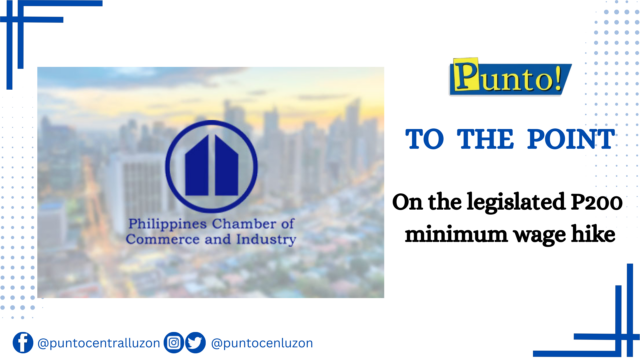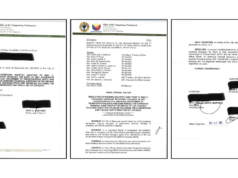THE PCCI views with concern the act of Congress to legislate a wage hike on two fronts
First, the unilateral wage hike was done without consideration to the impact it will have on the economy – on the price of goods and services, on those working in the informal sector who account for about 50-60% of the population, and on the micro and small enterprises (MSEs) that comprise 96% of the total number of enterprises in the country.
The wage hike leads to higher labor costs, consequently resulting to higher costs of goods and services, and inflation.
Even as the benefit will only be enjoyed by workers in the formal sector, the inflationary effect will erode purchasing power negating the wage hike’s intended benefit. This will bear down more on workers in the informal sector who are not bound by the minimum wage law.
Increased operational expense lends the risk of closure of smaller enterprises, reducing further the number of jobs in the formal sector.
Second, the unilateral wage hike sets a precedent that undermines the Regional Wages and Productivity Board, which was created primarily with the function to determine and set region-specific wages based on the local cost of living.
The setting of minimum wages takes into account the differences in the cost of living across regions as well as the unique needs of businesses based on specific industry, location, and type of labor they need. Legislating a single wage for all areas can harm businesses in lower-cost regions and removes the flexibility of the RWBs to set wages that are aligned with the situation in the local areas.
The PCCI hopes that the bicameral conference committee will have consider the position of the business sector and adopt a comprehensive approach that balances the needs of workers with the capacity of businesses and ensure that MSMEs continue to thrive while still providing fair wages.
(Statement of the Philippine Chamber of Commerce and Industry, 5 June 2025)





